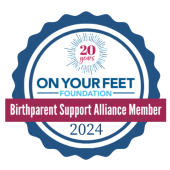Pros and Cons of Domestic vs. International Adoption

Key Differences: Domestic vs. International Adoption
Choosing between domestic vs. international adoption involves careful consideration of several key factors. Domestic adoption often provides the opportunity for a more transparent process with potential for ongoing contact with the child’s birth family.
In contrast, international adoption can introduce children from diverse cultural backgrounds into a family, though it may entail navigating complex legal requirements and longer wait times. Ultimately, understanding these differences helps prospective parents make a choice that best fits their lifestyle, values, and long-term goals for their family.
In the next section, we’ll explore the emotional and logistical aspects of each type of adoption, including the typical timelines, costs, and post-adoption support available, to help you make a well-rounded decision.
Understanding Domestic Adoption
Pros of Domestic Adoption
- Shorter Travel Distances: One of the significant advantages of domestic adoption is the reduced need for extensive travel. This makes it logistically easier and less financially burdensome compared to international adoption.
- Better Access to Medical Records: Prospective adoptive parents often have more comprehensive access to the child’s medical history and background information. This transparency is crucial for understanding the child’s needs and ensuring they receive appropriate care.
- Potential for Open Adoption: Domestic adoption often offers the possibility of open or semi-open adoptions, where there can be ongoing contact with the birth family. This can provide emotional benefits for the child and maintain connections to their biological heritage.
Cons of Domestic Adoption
- Long Waiting Periods: The wait time for a domestic adoption can be unpredictably lengthy, occasionally taking several years. However, if you choose this type of adoption, being prepared can help. because it’s worth it.
- Possibility of a Change of Heart: Many domestic adoptions are of infants placed at birth. In these cases, birth parents may match with adoptive families during the pregnancy, but their official decision to place is not made until after birth. This means there is a risk that the birth parent may have a change of heart, deciding that parenting is the best plan for them and their child. Understandably, this can be a heartbreaking experience for adoptive families.
- High Costs: Despite being within the same country, domestic adoptions can still be expensive. Fees associated with private agencies, legal processes, and home studies can add up significantly.
Exploring International Adoption
Pros of International Adoption
- Different Wait Times: In some cases, international adoptions can be completed more quickly. Many countries have established timelines and processes which can expedite the adoption journey.
- Meeting the Needs of Vulnerable Children: International adoption often provides homes for children who might otherwise remain in institutional care.
- Cultural Enrichment: Adopting internationally can enrich the family’s cultural diversity. It allows the child and family to celebrate and integrate new cultural traditions, fostering a globally-minded household.
Cons of International Adoption
- Complex Legal and Bureaucratic Processes: The legalities of international adoption can be complicated. Different countries have diverse requirements, and prospective parents must navigate both U.S. regulations and the laws of the child’s home country.
- Higher Travel and Accommodation Costs: International adoption typically requires extensive travel, including multiple trips overseas. These expenses, combined with accommodation costs, can be considerable.
- Limited Background Information: Obtaining detailed medical and social histories of the child can be challenging in international adoptions. This lack of information can pose difficulties in addressing the child’s health and developmental needs effectively.
- Adjustment and Assimilation Challenges: Children adopted internationally may face additional challenges, including language barriers and cultural adjustment. These factors can require extra support and resources from the adoptive family.
Financial Implications
Cost Factors in Domestic Adoption
- Agency Fees: Private agency adoptions can be expensive, with fees covering administrative costs, counseling services, and legal expenses. These fees can vary widely depending on the agency and the services provided.
- Legal and Home Study Costs: Legal fees and the cost of home studies add to the overall expense. These are necessary steps to ensure the adoptive home meets all regulatory standards and safeguards the child’s well-being.
- Potential Birth Mother Expenses: In some cases, adoptive parents may cover certain expenses for the birth mother, such as medical costs, living expenses during pregnancy, and counseling services. These costs vary based on individual circumstances and state regulations.
Cost Factors in International Adoption
- Travel and Accommodation: International adoption often necessitates multiple trips to the child’s home country. Travel expenses, including flights, visas, and accommodations, can be substantial. These costs must be factored into the overall adoption budget.
- Agency and Legal Fees: Similar to domestic adoption, there are agency fees, but international agencies might also charge for translation services, dossier preparation, and legal processes specific to the country from which the child is adopted.
- Post-Adoption Requirements:
Certain countries require post-adoption visits and reports to ensure the child’s well-being. These requirements can incur additional costs over time and must be planned for accordingly.
Understanding the Legal Landscape
Legal Considerations in Domestic Adoption
- State and Federal Regulations: Domestic adoptions are governed by state laws, which vary significantly. Prospective adoptive parents must familiarize themselves with their state’s specific requirements, including home study protocols, consent laws, and finalization processes.
- Interstate Adoptions: If adopting a child from a different state, the Interstate Compact on the Placement of Children (ICPC) must be followed. This agreement ensures that all legal and procedural safeguards are met across state lines, adding an additional layer of regulation.
- Parental Rights and Consents: The termination of birth parents’ rights is a critical step in domestic adoption. This process includes ensuring that birth parents have given their informed consent and that all legal requirements for relinquishing parental rights are met.
Legal Considerations in International Adoption
- International Laws and Treaties: International adoptions are subject to both U.S. laws and the laws of the child’s home country. This often includes adherence to international treaties like the Hague Convention on Protection of Children and Co-operation in Respect of Intercountry Adoption, which sets ethical standards for cross-border adoptions.
- Immigration Requirements: Ensuring that the adopted child can legally enter and reside in the United States involves navigating immigration laws. Prospective parents must work with immigration authorities to secure the necessary visas and documentation for their adopted child.
- Compliance with Home Country Requirements: Each country has its own set of regulations and requirements for adoption. These can include residency requirements, mandatory cultural training, and specific post-adoption follow-up visits. Prospective parents must be prepared to meet these obligations.
Weighing Domestic vs. International Adoption
Evaluating the pros and cons of domestic vs. international adoption provides valuable insights for prospective parents. Each path offers unique benefits, such as shorter travel distances in domestic adoption and cultural enrichment in international adoption. Challenges like complex legal processes also need careful consideration. Ultimately, understanding these factors helps families choose the adoption route that best aligns with their circumstances and goals.
Are you considering adoption? The Adoption Center for Family Building is here to support you through every step of this life-changing process. Our experienced team offers compassionate guidance and extensive resources to help you navigate the adoption journey with confidence. Visit our website to learn more about how we can assist you in creating the family you’ve always dreamed of. For personalized assistance, please contact us.





